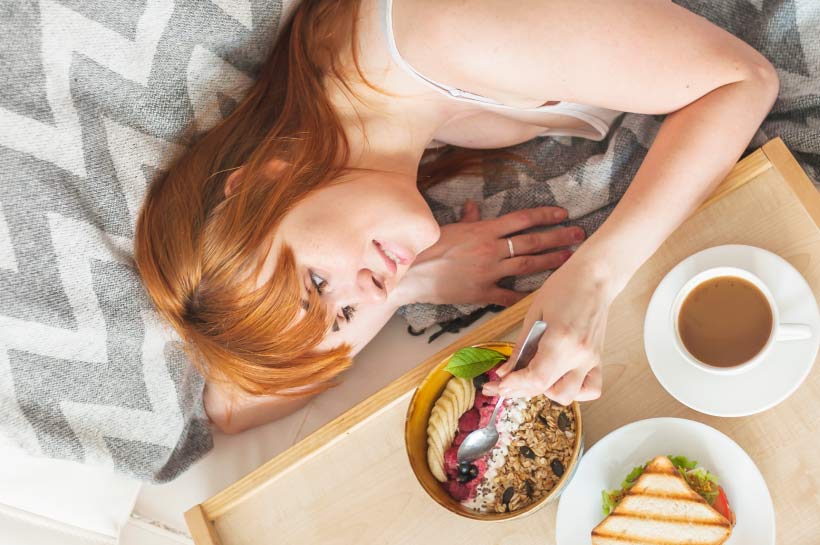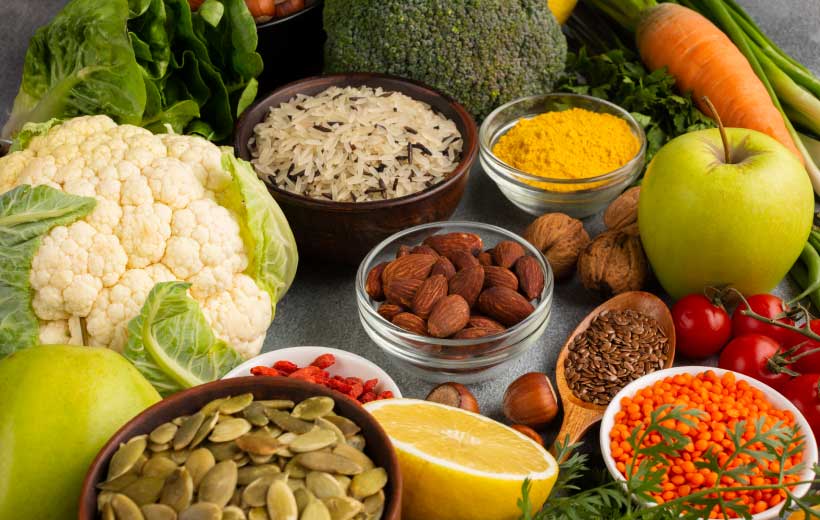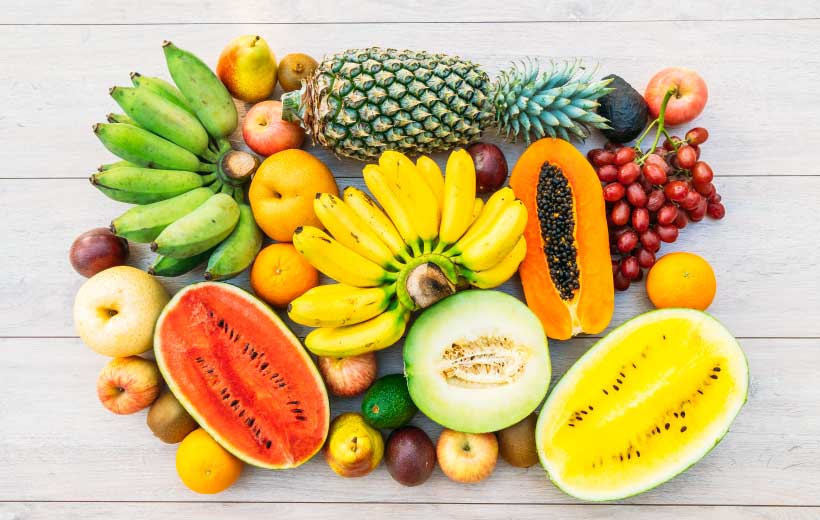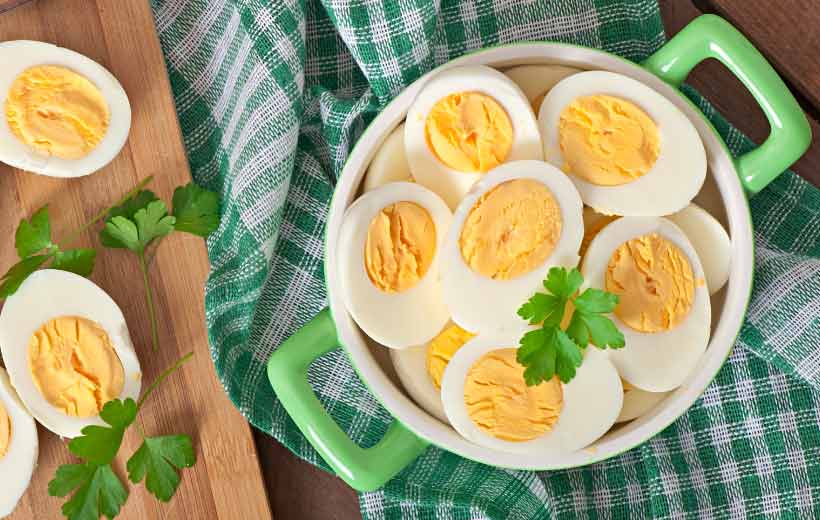9 best foods to eat before going to bed
If you’re tired of insomnia, trying one of these foods before bed can help you fall asleep faster. The following article will provide information about the 9 best foods you should eat before going to bed.
1. Almond
Almonds are a tree nut that contains many health benefits. They are a great source of many nutrients. Eating almonds regularly may reduce the risk of several chronic diseases, such as type 2 diabetes and cardiometabolic disease. This is attributed to their source of healthy monounsaturated fats, fiber, and antioxidants. Antioxidants can protect your cells from harmful inflammation that can lead to these chronic diseases.
It is claimed that almonds can also help enhance sleep quality. This is because almonds, along with other nuts, are a source of the hormone melatonin. Melatonin helps regulate your body’s internal clock and signals you to get ready for sleep. Almonds are also an excellent source of magnesium, providing 19% of your daily needs in just 30 grams. Consuming enough magnesium may help improve sleep quality, especially for people with sleep disorders.
Magnesium’s role in promoting sleep is thought to be related to its ability to reduce inflammation. Additionally, it can help reduce levels of the stress hormone cortisol, which is known to disrupt sleep.
One study investigated the effects of feeding rats 400 milligrams (mg) of almond extract. Scientists discovered that these mice slept longer and more deeply than those that did not use almond extract.
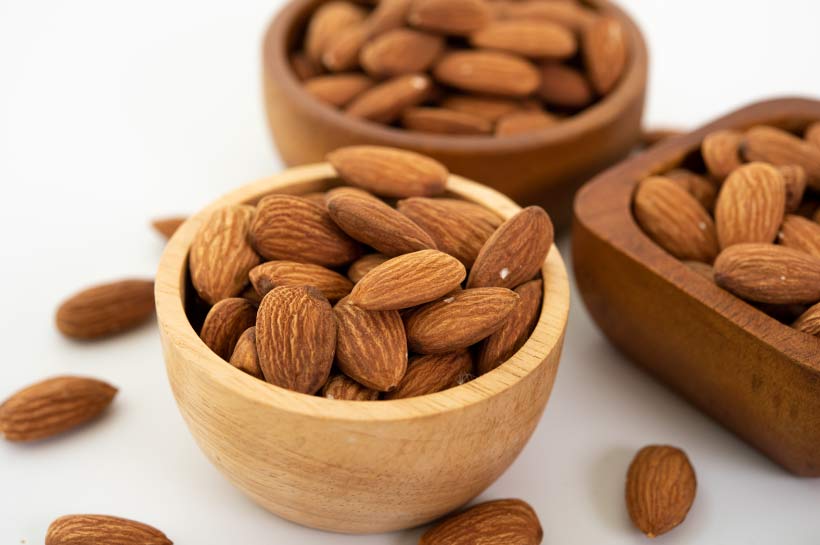
2. Chicken
Chicken is a very delicious and nutritious food. It contains a lot of protein. Protein is important for keeping muscles healthy and regulating our appetite. In addition, turkey is a good source of several vitamins and minerals, such as vitamin B2 (riboflavin) and phosphorus. This is also a great source of selenium.
Most notably, turkey contains the amino acid tryptophan, which increases melatonin production. The protein in turkey may also contribute to its ability to promote feelings of fatigue. There is evidence that consuming moderate amounts of protein before bed is associated with better sleep quality, including less waking during the night. However, more research is needed to confirm the potential role of turkey in improving sleep.
3. Chrysanthemum tea
Chamomile tea is a popular herbal tea that can provide many health benefits. Chrysanthemum tea is famous for its flavonoids. Flavones are a type of antioxidant that helps reduce inflammation, a major cause of chronic diseases, such as cancer and heart disease. There is also some evidence that drinking chamomile tea can strengthen the immune system, reduce anxiety and depression, and improve skin health.
Besides, chrysanthemum tea also has some unique properties that can improve sleep quality. Specifically, chrysanthemum tea contains apigenin. This antioxidant binds to certain receptors in the brain that can promote sleepiness and reduce insomnia. Drinking chamomile tea before bed is definitely worth a try if we want to improve the quality of our sleep.
4. Kiwi
Kiwi is a low-calorie and very nutritious fruit. One kiwi contains only 42 calories but packs a significant amount of nutrients, including 71% of the body’s daily requirement for vitamin C. Kiwi also provides men and women with 23% and 31% of their daily needs. vitamin K they need every day. Kiwi fruit contains large amounts of folate and potassium, as well as several trace minerals. Furthermore, eating kiwis may benefit digestive health, reduce inflammation, and lower cholesterol. These effects are because they provide large amounts of fiber and carotenoid antioxidants.
According to studies on its ability to improve sleep quality, kiwifruit is also likely to be one of the best foods to eat before you go to bed. In a four-week study, 24 adults consumed two kiwis one hour before bed each night. At the end of the study, participants fell asleep 42% faster than when they didn’t eat anything before bed.
The sleep-improving effects of kiwi are believed to be due to serotonin. Serotonin is a chemical in the brain that helps regulate our sleep cycles. It is also thought that the anti-inflammatory antioxidants in kiwi, such as vitamin C and carotenoids, may be part of the reason why this fruit can improve people’s sleep.
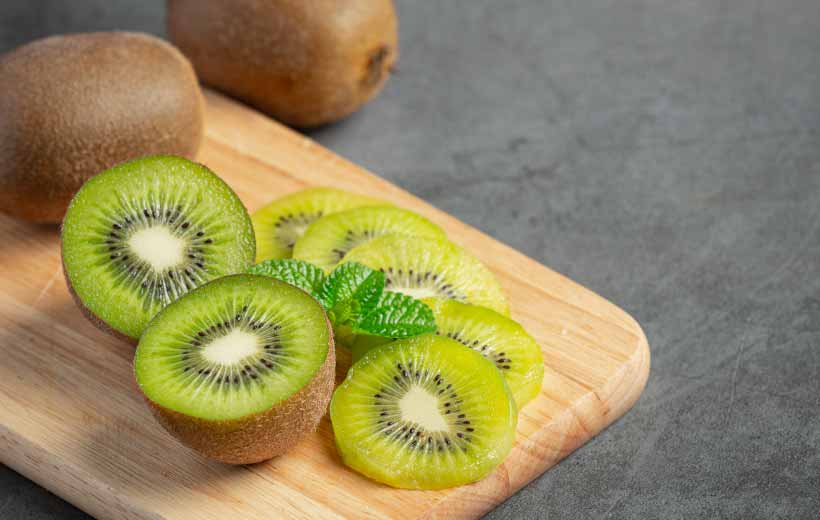
5. Sour cherry juice
Tart cherry juice has been shown to have some impressive health benefits. First, it provides adequate amounts of several important nutrients, such as magnesium and phosphorus. Cherry juice is also a good source of potassium. Additionally, it is a rich source of antioxidants, including anthocyanins and flavonols.
Tart cherry juice is also known to promote sleepiness and has even been studied for its role in reducing insomnia. For these reasons, drinking tart cherry juice before bed can improve our sleep quality.
The sleep-promoting effect of tart cherry juice is due to the large amount of melatonin it contains. In a recent study, adults with insomnia drank 8 ounces of tart cherry juice twice a day for 2 weeks. They slept 84 minutes longer and reported better sleep quality than when they did not drink the juice.
While these results are promising, more extensive research is needed to confirm tart cherry juice’s role in improving your sleep and preventing insomnia. However, drinking some tart cherry juice before bed is worth a try if you’re struggling with insomnia or difficulty sleeping at night.
6. Fatty fish
Fatty fish such as salmon, tuna, and mackerel are very good for your health. What makes them even more unique is their exceptional amount of vitamin D. In addition, fatty fish also contain healthy omega-3 fatty acids, specifically eicosapentaenoic acid (EPA) and docosahexaenoic acid (DHA). EPA and DPA are known to reduce inflammation. Additionally, omega-3 fatty acids may protect against heart disease and promote brain health. The combination of omega-3 fatty acids and vitamin D in fatty fish has the potential to help enhance sleep quality, as both have been shown to increase serotonin production.
Eating a few ounces of fatty fish before bed can help us fall asleep faster and sleep deeper. However, more research is needed to draw firm conclusions about the ability of fatty fish to improve sleep.
7. Walnuts
Walnuts are a fairly popular nut. They are packed with nutrients, providing more than 19 vitamins and minerals; In addition, there are 1.9 grams of fiber in a 28-gram serving. Walnuts are especially rich in magnesium, phosphorus, manganese, and copper. In addition, walnuts are also a source of healthy fats, including omega-3 fatty acids and linoleic acid. They also provide 4.3 grams of protein per 30-gram serving, which may be beneficial for reducing appetite.
Walnuts have also been shown to boost heart health. They have been studied for their ability to reduce cholesterol levels, which is a major risk factor for heart disease. Furthermore, some researchers claim that eating walnuts will help improve sleep quality because they are one of the best food sources of melatonin.
The fatty acid composition of walnuts may also contribute to helping us sleep better. They provide alpha-linolenic acid (ALA) and omega-3 fatty acids that are converted to DHA in the body. DHA can increase serotonin production.
There isn’t much evidence to support the sleep-improving hypothesis of walnuts. In fact, there hasn’t been any research that specifically focuses on their role in promoting sleep. However, they are still worth a try if you want a good night’s sleep.
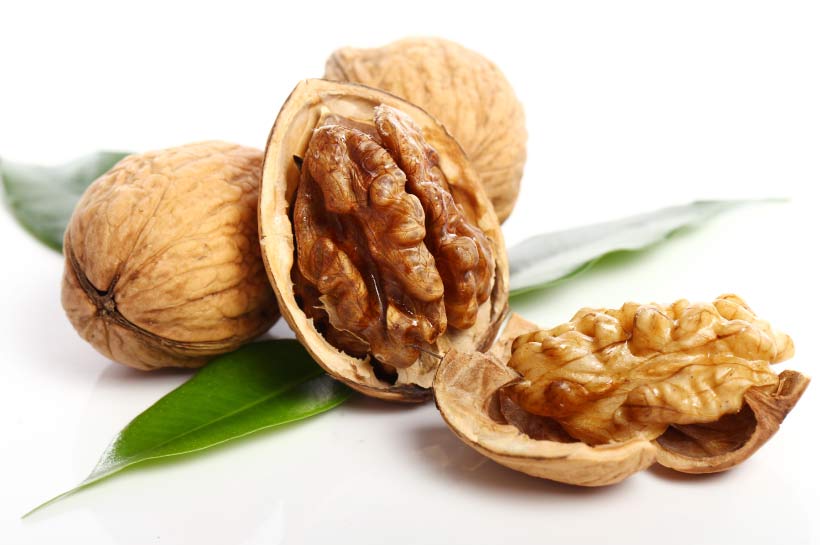
8. Passion flower tea
Passionflower tea is another traditional herbal tea used to treat several health-related ailments. Passionflower tea is a rich source of flavonoid antioxidants. Flavonoid antioxidants are known for their role in reducing inflammation, boosting immune health, and reducing the risk of heart disease. Additionally, passionflower tea has been studied for its ability to reduce stress and anxiety.
Apigenin in passionflower tea is an antioxidant that helps reduce anxiety. Apigenin produces a calming effect by binding to certain receptors in our brains. There is also some evidence that passionflower increases the production of the brain chemical gamma-aminobutyric acid (GABA). GABA works to inhibit other brain chemicals that cause stress, such as glutamate. The soothing properties of passionflower tea can promote sleepiness, so we can drink it before going to bed.
9. Rice
White rice is a grain widely consumed as a staple food in many countries, including Vietnam. The main difference between white rice and brown rice is that white rice has had the bran and germ removed. This causes it to contain less fiber, nutrients, and antioxidants. However, white rice still contains a large amount of vitamins and minerals.
White rice is high in carbs, providing 22 grams in a 79-gram serving. Carb and fiber content contributes to increased glycemic index (GI). The glycemic index is a measure of how quickly a food raises our blood sugar levels. It has been suggested that eating high-GI foods, such as white rice, at least 1 hour before bed can help improve sleep quality.
One study compared the sleeping habits of 1,848 people based on whether they ate rice, bread, or noodles. When you eat more rice, you will have better sleep than eating bread or noodles, including longer sleep times.
Getting enough sleep is important for our health. Certain foods and drinks may help improve sleep quality. This is because they contain hormones that help regulate sleep and brain chemicals, such as melatonin and serotonin. Some other foods and drinks contain large amounts of antioxidants and nutrients including magnesium and melatonin, which are known to enhance sleep by helping us fall asleep more quickly or stay asleep. longer. To reap the benefits of sleep-enhancing foods, it’s best to consume them 2 – 3 hours before bed. Eating right before bed can cause digestive problems, such as gastroesophageal reflux.

